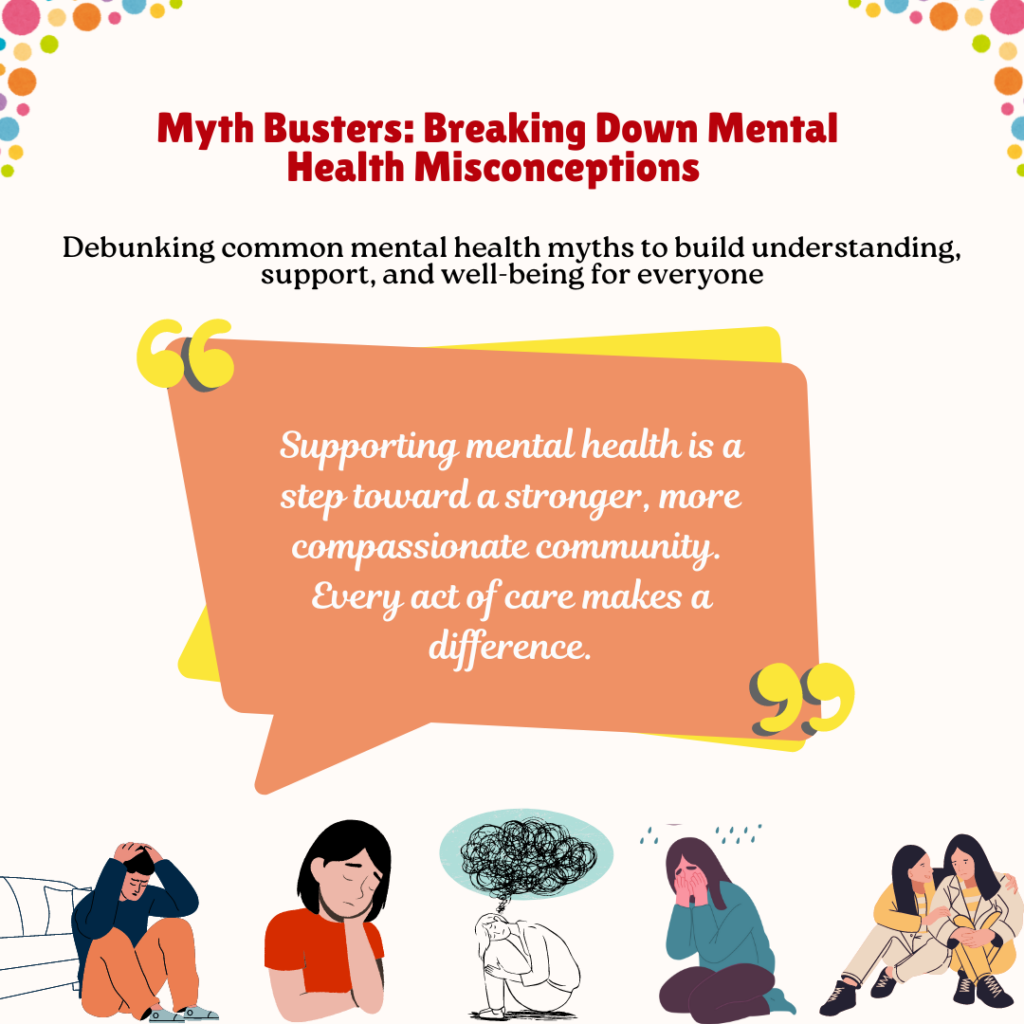
Let’s clear up some commons myths about mental health and create a space where seeking help for mental health is understood and supported. Explore more about these mental health myths and facts here.

- “Mental Health Issues Are Rare”
Mental health issues are common, with nearly 50% of Canadians experiencing a condition by age 40. Suicide is also a leading cause of death among young people, making awareness crucial.
- “Children don’t experience mental health issues.”
Mental health issues can begin in childhood. About 17% of kids aged 2-5 years already meet the criteria for a mental health condition.
- “Therapy doesn’t work.”
Therapy as a toolkit for everyone can be life-changing. Studies show that after 21 sessions, about 50% of people experience significant improvements.
- “Depression Always Has a Clear Cause”
Mental health is much more than just feelings. It includes our thoughts, actions, and relationships. Depression can result from a mix of genetic, biological, and life factors—not just a specific event.
- “Mental Health Problems Make People Violent”
Media stereotypes fuel this harmful myth. People with mental health issues are more likely to be victims rather than perpetrators of violence.
- “You can simply ‘snap out of it.”
Our minds can be complex puzzles. Depression isn’t a choice, and people can’t simply snap out of it. It often requires treatment, which may include therapy, medication, and lifestyle changes, to manage and improve symptoms.
- “People with Bipolar Disorder constantly switch moods “
Not everyone with bipolar disorder experiences constant mood swings. Some may have long periods of stability between episodes, while others might experience mostly depressive or manic episodes.
- “Talking about mental health worsens it.”
Discussing mental health openly helps reduce stigma and encourages support. Conversations about mental health are important for healing and understanding.
- “You can spot mental health issues just by looking at someone.”
Mental health struggles are often invisible. Showing kindness and understanding is crucial because appearances can be misleading.
- “Medication is the only solution.”
Mental health treatment isn’t one-size-fits-all. It can include therapy, lifestyle changes, and medication. It’s about finding what works best for each individual.
- “Recovery means it’s over.”
Mental health is an ongoing journey. It’s about continuous growth and learning, not just reaching an end point.
That’s a wrap on our Myth Busters session! Remember, mental health is a crucial part of our lives. Let’s spread awareness, break down stigma, and keep the conversation alive.
Stay awesome and stay informed!



